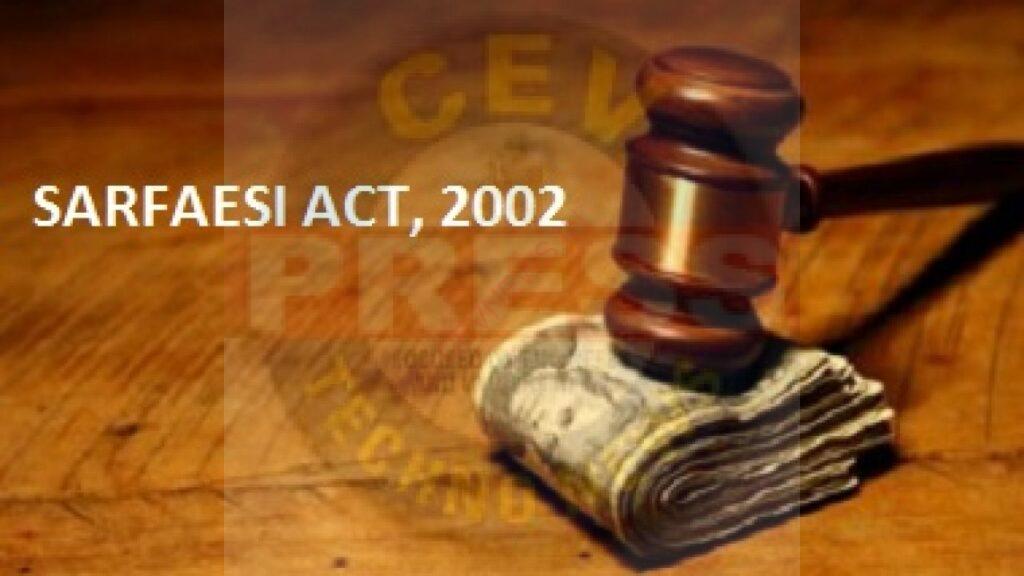IMPACT OF VALUATION ON THE CREDITOR-DEBTOR RELATIONSHIP IN SARFAESI CASES
Impact of Valuation on the Creditor-Debtor Relationship in SARFAESI Cases
Introduction
The Securitisation and Reconstruction of Financial Assets and Enforcement of Security Interest (SARFAESI) Act, 2002, was introduced in India to empower banks and financial institutions to recover their non-performing assets (NPAs) without the intervention of courts. The valuation of assets plays a critical role in this process, significantly affecting the relationship between creditors and debtors.
Valuation: The Cornerstone of SARFAESI Proceedings
Importance of Accurate Valuation
Accurate asset valuation ensures that the recovery process under SARFAESI is fair and transparent. It determines the reserve price for the auction of the secured assets, which impacts both the creditor’s recovery and the debtor’s liability. Overvaluation can lead to a lack of bidders, while undervaluation might result in inadequate recovery for creditors and unjust loss for debtors.
Impact on Creditor’s Recovery
The primary goal for creditors under the SARFAESI Act is to maximize the recovery of dues. A well-conducted valuation ensures that the assets are sold at a fair price, which helps in minimizing the financial loss. An accurate valuation also aids in quickening the resolution process, reducing the burden of NPAs on the financial system.
Influence on Debtor’s Interests
Protection of Debtor’s Rights
While the SARFAESI Act is creditor-friendly, it includes provisions to protect the debtor’s rights. Proper valuation of assets ensures that debtors are not unduly burdened by an unfair recovery process. The Act mandates the issuance of notices and allows the debtor to contest the valuation if it is perceived to be biased or inaccurate.
Impact of Undervaluation
If an asset is undervalued, it can lead to its sale at a price significantly lower than its market value. This results in a greater financial loss for the debtor, who might lose their property for a fraction of its worth. Such scenarios can lead to prolonged legal disputes and affect the debtor’s financial standing.
Role of Valuers in SARFAESI Cases
Qualifications and Accountability
Valuers play a pivotal role in the SARFAESI process. They are expected to possess the necessary qualifications and adhere to professional standards. Their accountability is crucial, as inaccurate valuations can lead to significant financial repercussions and affect the credibility of the recovery process.
Challenges Faced by Valuers
Valuers often face challenges such as market volatility, lack of comparable sales data, and pressure from stakeholders. Ensuring impartiality and accuracy in such conditions is critical for maintaining the integrity of the SARFAESI process.
Legal and Regulatory Framework
Guidelines and Compliance
The Reserve Bank of India (RBI) and other regulatory bodies have laid down specific guidelines for the valuation of assets under the SARFAESI Act. Compliance with these guidelines is essential to ensure a fair recovery process. Regular audits and checks are conducted to maintain adherence to these standards.
Judicial Precedents
Various court rulings have highlighted the importance of accurate valuation in SARFAESI cases. The judiciary has intervened in instances of gross undervaluation or overvaluation, setting precedents for future cases. These rulings underscore the need for transparency and fairness in the valuation process.
The valuation of assets is a critical element in SARFAESI cases, significantly impacting the creditor-debtor relationship. Accurate and fair valuation ensures the protection of both parties’ interests, facilitating a smoother recovery process. It is imperative for all stakeholders, including valuers, financial institutions, and regulatory bodies, to uphold the principles of transparency and accuracy to maintain the efficacy of the SARFAESI Act.


